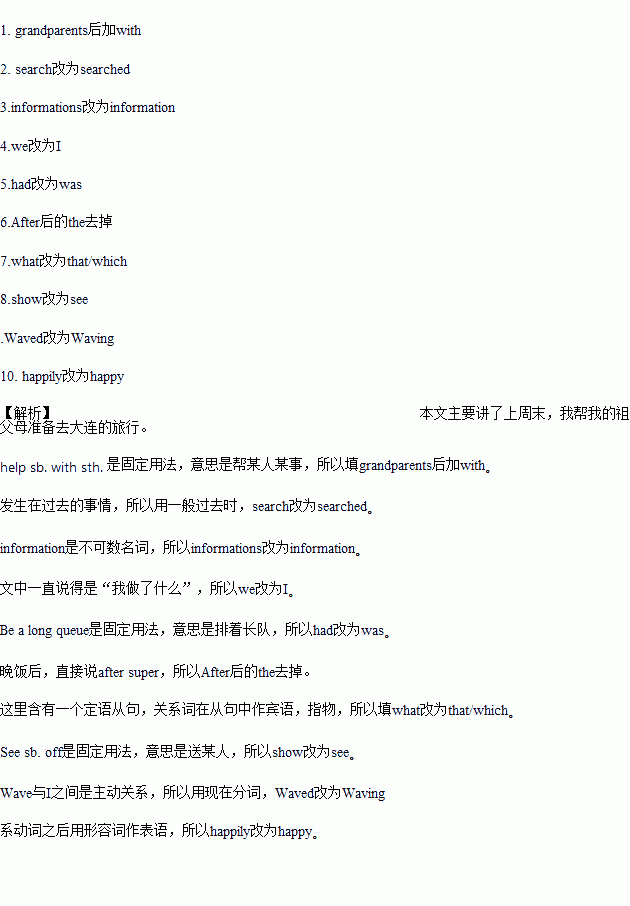题目内容
文中共有10处语言错误,请在有错误的地方增加、删除或修改某个单词。每处错误及其修改均仅限一词;只允许修改10处,多者(从11处起)不计分。
Last weekend, I helped my grandparents their trip to Dalian. On Saturday morning, together with my grandparents, I search the Internet for the train schedule, the weather in Dalian, and some hotel informations. In the afternoon, we went to the train station and managed to buy two tickets for my grandparents although there had a long queue. After the supper, I packed into the suitcase the things what my grandparents would need, such as clothes, glasses, an umbrella, and a map. The next morning, I went to the station to show them off. Waved goodbye to them on the platform, I felt happily for them and wished them a safe journey.
练习册系列答案
相关题目

